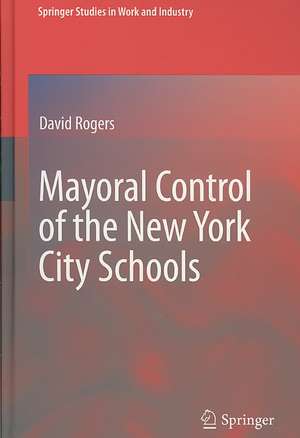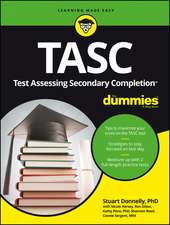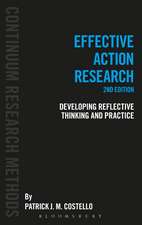Mayoral Control of the New York City Schools: Springer Studies in Work and Industry
Autor David Rogersen Limba Engleză Hardback – 12 dec 2008
| Toate formatele și edițiile | Preț | Express |
|---|---|---|
| Paperback (1) | 632.37 lei 6-8 săpt. | |
| Springer Us – 19 noi 2010 | 632.37 lei 6-8 săpt. | |
| Hardback (1) | 636.80 lei 6-8 săpt. | |
| Springer Us – 12 dec 2008 | 636.80 lei 6-8 săpt. |
Din seria Springer Studies in Work and Industry
- 15%
 Preț: 646.43 lei
Preț: 646.43 lei - 18%
 Preț: 951.77 lei
Preț: 951.77 lei - 18%
 Preț: 1257.21 lei
Preț: 1257.21 lei - 15%
 Preț: 645.28 lei
Preț: 645.28 lei -
 Preț: 388.52 lei
Preț: 388.52 lei - 15%
 Preț: 650.37 lei
Preț: 650.37 lei - 15%
 Preț: 644.82 lei
Preț: 644.82 lei - 15%
 Preț: 638.11 lei
Preț: 638.11 lei -
 Preț: 382.57 lei
Preț: 382.57 lei - 15%
 Preț: 644.18 lei
Preț: 644.18 lei - 18%
 Preț: 1225.94 lei
Preț: 1225.94 lei - 18%
 Preț: 954.93 lei
Preț: 954.93 lei - 15%
 Preț: 652.49 lei
Preț: 652.49 lei - 5%
 Preț: 1419.20 lei
Preț: 1419.20 lei - 15%
 Preț: 645.60 lei
Preț: 645.60 lei - 18%
 Preț: 960.13 lei
Preț: 960.13 lei - 18%
 Preț: 951.14 lei
Preț: 951.14 lei -
 Preț: 387.20 lei
Preț: 387.20 lei -
 Preț: 389.49 lei
Preț: 389.49 lei -
 Preț: 400.85 lei
Preț: 400.85 lei -
 Preț: 399.12 lei
Preț: 399.12 lei -
 Preț: 393.13 lei
Preț: 393.13 lei
Preț: 636.80 lei
Preț vechi: 749.19 lei
-15% Nou
Puncte Express: 955
Preț estimativ în valută:
121.85€ • 127.23$ • 100.62£
121.85€ • 127.23$ • 100.62£
Carte tipărită la comandă
Livrare economică 15-29 aprilie
Preluare comenzi: 021 569.72.76
Specificații
ISBN-13: 9780387711416
ISBN-10: 0387711414
Pagini: 134
Ilustrații: XII, 134 p.
Dimensiuni: 155 x 235 x 13 mm
Greutate: 0.32 kg
Ediția:2009
Editura: Springer Us
Colecția Springer
Seria Springer Studies in Work and Industry
Locul publicării:New York, NY, United States
ISBN-10: 0387711414
Pagini: 134
Ilustrații: XII, 134 p.
Dimensiuni: 155 x 235 x 13 mm
Greutate: 0.32 kg
Ediția:2009
Editura: Springer Us
Colecția Springer
Seria Springer Studies in Work and Industry
Locul publicării:New York, NY, United States
Public țintă
ResearchCuprins
Why Past Reforms Have Not Worked.- Historical Context 1: Cycles of Centralization and Decentralization.- Historical Context 2: Mayoral Governance as an Emerging National Movement.- Analytical Context: A Framework for Assessing Mayoral Governance in New York.- Bloomberg's Emerging Engagement in the New Your City Schools.- Style and Directions of the Transformation.- Structural Components.- Implementation Problems.- Lessons for Mayoral Governance: Critical Issues for the Future.
Textul de pe ultima copertă
The New York City public school system has fundamentally changed its governance four times during the past forty years. It moved in 1970 from a highly centralized bureaucracy to a more community-based decentralized system, both of which were independent of the mayor. In 2002 under mayoral control, the system again centralized and then in 2007 decentralized. In each instance, New York has been an example (for good and bad) that many other large cities follow.
The author of this timely work presents an analysis of the political and organizational dynamics of Mayor Bloomberg’s and Chancellor Klein’s new mode of governance and of how their management style has shaped its design and implementation. The focus is the first phase of mayoral control (2003 until the fall of 2007). The book provides a unique opportunity to assess mayoral control of the largest public school system in the United States, and the results have ramifications for other large cities that have instituted mayoral control or are exploring the idea. The stimulus for the change to mayoral control comes from big city mayors, business leaders, state and city appointed and elected officials, concerned about how the schools have contributed to the U.S. economy’s declining global competitiveness and social and economic problems of inner cities.
The author of this timely work presents an analysis of the political and organizational dynamics of Mayor Bloomberg’s and Chancellor Klein’s new mode of governance and of how their management style has shaped its design and implementation. The focus is the first phase of mayoral control (2003 until the fall of 2007). The book provides a unique opportunity to assess mayoral control of the largest public school system in the United States, and the results have ramifications for other large cities that have instituted mayoral control or are exploring the idea. The stimulus for the change to mayoral control comes from big city mayors, business leaders, state and city appointed and elected officials, concerned about how the schools have contributed to the U.S. economy’s declining global competitiveness and social and economic problems of inner cities.
Caracteristici
Assesses the first three years of Mayor Bloomberg’s radical overhaul of the NYC schools The analysis of this governance asks the question: To what extent can the business management paradigm be transferred to search a public section agency?















